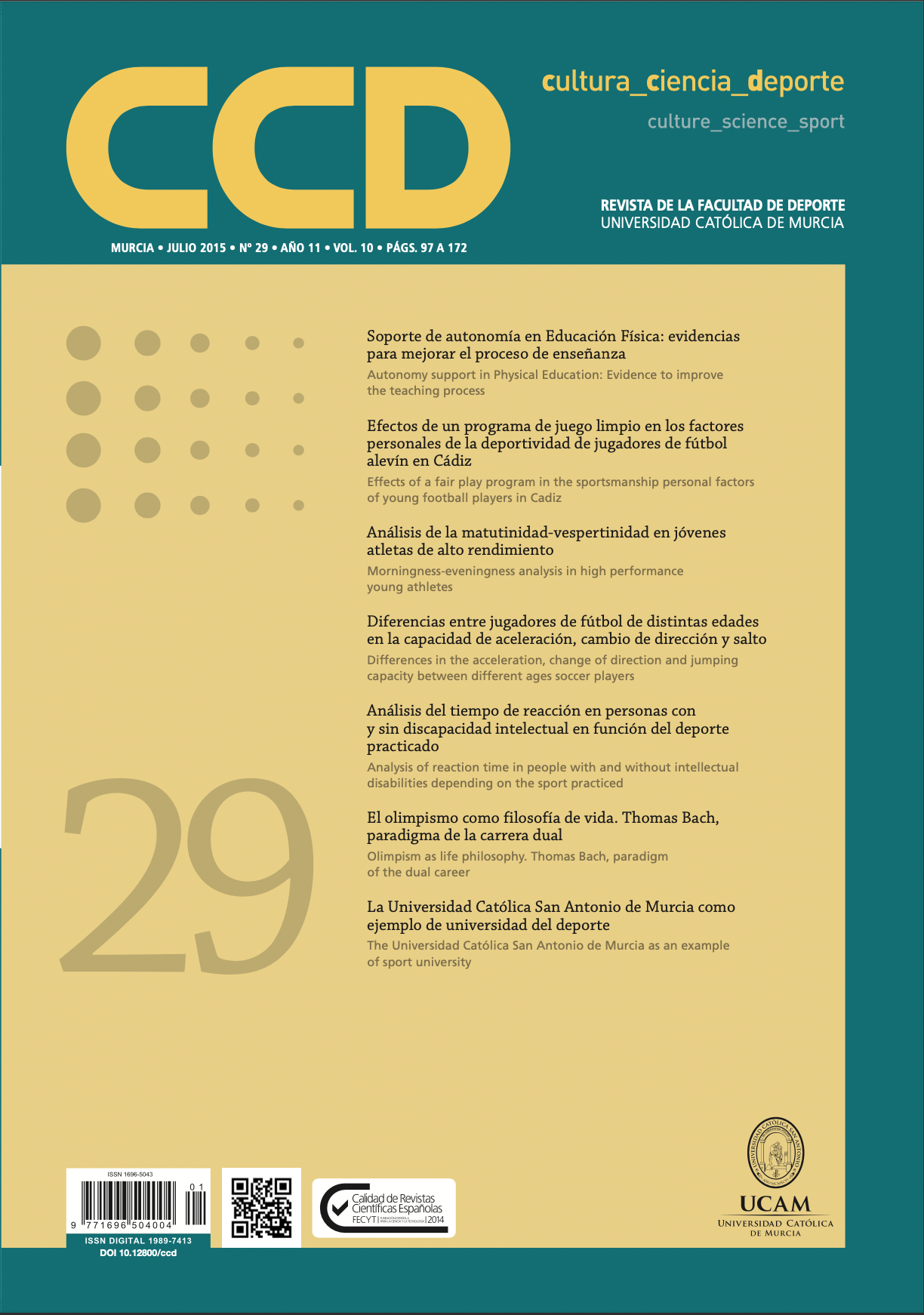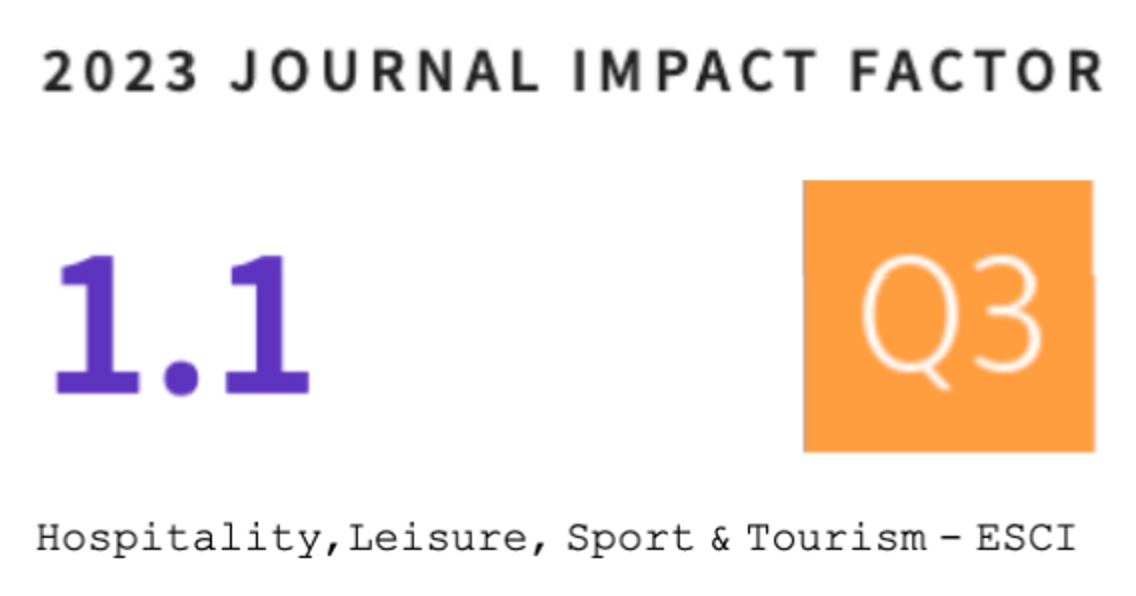Efectos de un programa de juego limpio en los factores personales de la deportividad de jugadores de fútbol alevín en Cádiz. (Effects of a fair play program in the sportsmanship personal factors of young football players in Cadiz).
DOI:
https://doi.org/10.12800/ccd.v10i29.558Abstract
http://dx.doi.org/10.12800/ccd.v10i29.558
A pesar de que en los últimos años han proliferado programas para el desarrollo de la deportividad, existen evidencias empíricas que corroboran la necesidad que demanda actualmente el fútbol base de un tratamiento ético. Por esta razón el objetivo del presente estudio fue elaborar un programa de intervención específicamente diseñado para jugadores de fútbol alevín centrado en la mejora de los aspectos personales de la deportividad y analizar el cambio que pudiera generar. La muestra la compusieron ciento veintiséis (n = 126) futbolistas federados con una media de edad de 10.9 años. Al grupo experimental se le aplicó un programa de educación en valores de cinco semanas de duración. Para valorar la eficacia del programa se realizó un análisis intra-grupo en el que se empleó la prueba de Wilcoxon y una intergrupo, para el que se utilizó el test exacto de Fisher’s. Los participantes en el programa, en comparación con los que no recibieron tratamiento educativo, mejoraron su actitud ante el fracaso (p < 0.05). Los integrantes del grupo control empeoraron en un 70% de los aspectos analizados. Los participantes del control y experimental mejoraron la asistencia a los entrenamientos. El programa no fue efectivo en dos casos: la modificación del tipo de motivación (diversión o resultado) y el respeto al entrenador. Justificamos la necesidad de la implementación de programas formativos en el fútbol de cantera de cara a la mejora de la actitud frente al error y como medida preventiva frente a la pérdida de valores.
Palabras clave: programa de intervención, deportividad, fútbol base.
===
Abstract
Even though in the last few years there has been a significant number of programs for the development of sportsmanship, there is empirical evidence that illustrates the need to improve ethical practice within football. This study aimed to address this by creating and developing an intervention specifically tailored to young football players in order to improve the personal aspects of sportsmanship and analyse the changes that this might cause. The sample included one hundred and twenty-six (n = 126) registered football players with an average age of 10.9 years. Over a period of five weeks an education program in ‘values’ was applied within the experimental group. The program effectiveness was assessed by an intra-group analysis, using the Wilcoxon signed ranks test, and inter-group analysis for the Fisher’s exact test. Participants of the program, in comparison with those who did not take part in the educational process, improved their attitude towards failure (p < 0.05). Control group members worsened in 70% of all studied aspects. Participants of the control group and the educational process improve the training assistance. The program was not effective in two cases: type of motivation change (enjoyment or result) and the respect for the trainer. The findings support the need to implement formative programs in grassroots football in order to improve the attitude towards errors and as a preventive measure against loss of values.
Key words: Intervention program, football, sportsmanship.
Downloads
How to Cite
Issue
Section
License
The authors who publish in this journal agree with the following terms:
- The authors retain the copyright and guarantee the journal the right to be the first publication of the work as well as licensed under a Creative Commons Attribution License that allows others to share the work with recognition of the authorship of the work and the initial publication in this journal.














